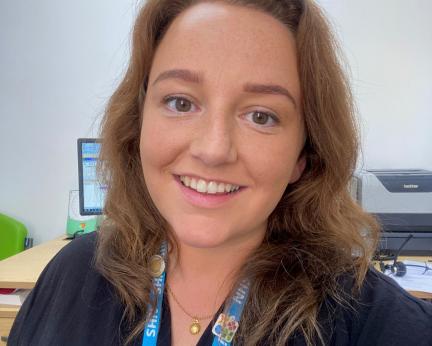I became interested in public health and inequalities after becoming unwell in 2013. I had to put my degree on hold and became very isolated. It led me to volunteer for Guide Dogs for the Blind and the NHS and eventually into paid work improving healthcare locally.
However, my journey wasn’t without its challenges. I was registered blind, and it made getting employment difficult. After 460 job applications, I still hadn’t managed to secure a single interview, and when I was finally invited to interviews, I was told by one recruiter they ‘didn’t understand how having a visually impaired staff member would work’, as there was some travelling involved in the role. It became very disheartening.
I had a breakthrough when I volunteered for a week-long NHS Rapid Process Improvement Workshop as a patient voice for ophthalmology. It led to me focussing my volunteering efforts on campaign coordination and improving outcomes for people who are blind or visually impaired. I eventually secured a job working in operations for a primary care provider. It shows that a commitment to volunteering can lead to paid employment.
I was inspired to pursue social prescribing as a career when it became clear how many patients with complex social factors visit their GP. From this point, I knew this was where I wanted to work, and I haven’t looked back since.





